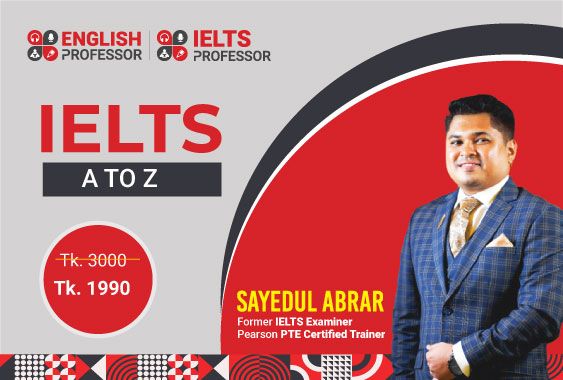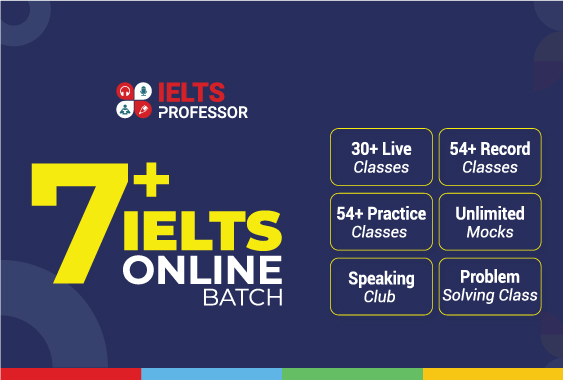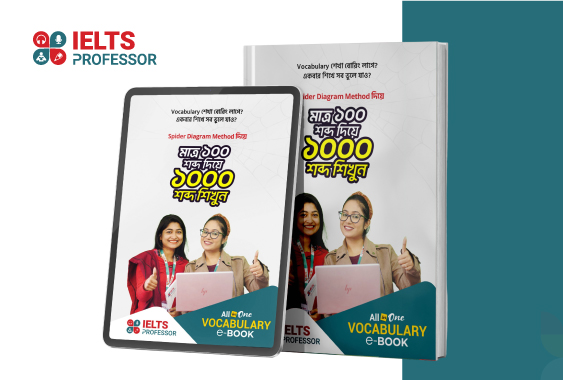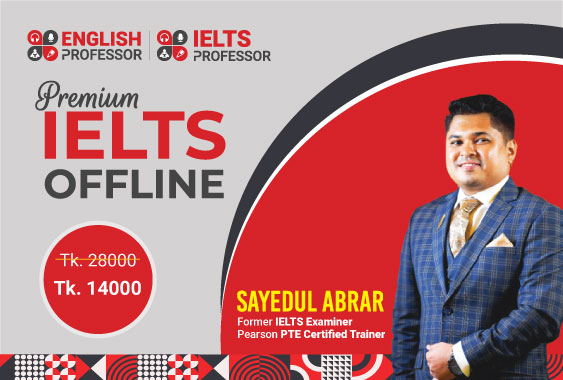
One dream that a majority of students in Bangladesh have in
common: scoring an outstanding IELTS score, if not for a better future abroad.
The IELTS (International English Language Testing System) exam is a very
important step for the students who are going to study in foreign countries
like the UK, the USA, Australia, Canada, and New Zealand, etc. However, getting
a great IELTS score is not an easy path. It takes commitment, effort, and a
careful plan of action for preparation.
In the case of Bangladeshi students, this journey can be
extra difficult. The situation is compounded by financial limitations, a lack
of adequate resources, and in some cases, limited access to native English-speaking
environments. But with a little bit of paradox and preparation, there is NO WAY
you can achieve your desired IELTS score to help you, prepare for your next step
to Bangladesh.
In this article we are going to discuss tips on how students
from Bangladesh can prepare effectively for the IELTS exam. In the course of
this, we will walk through real-life examples of top rank holders, their
strategies & hurdles. For that, this guide is equipped with personal
anecdotes, expert advice and proven strategies that will get you that excellent
IELTS score you're gunning for — assuming you're preparing from Bangladesh.
IELTS Explained: It All Begins Here
The IELTS exam evaluates your proficiency in English through
four fundamental skills, including Listening, Reading, Writing, and Speaking.
Now, each of these sections has its own way of approach and preparation.
Listening and Speaking sections are the most difficult parts for most
Bangladeshi students, This is primarily due to the fact that the vast majority
of students live outside any kind of English-speaking environment on a
day-to-day basis. This is a serious obstacle — but not an impossible one.
To score an outstanding IELTS score, you must first
understand the structure and requirements of the exam. Here's a quick
breakdown:
- Listening:
This section tests your ability to understand spoken English. It consists
of four recordings, each with a set of questions.
- Reading:
The Reading section includes three passages and requires you to answer
multiple-choice questions, complete sentences, and identify information.
- Writing:
This section involves describing data or a process in Task 1 and writing
an essay in Task 2.
- Speaking:
The Speaking test is a face-to-face interview, where you will be asked
questions about yourself, your life, and various topics.
The Challenges Faced by Bangladeshi Students
Preparing for the IELTS exam from Bangladesh comes with its
own set of unique challenges. Let's break down these challenges and see how
they impact students:
- Financial
Constraints: Many students face financial difficulties in preparing
for IELTS, including the cost of the exam itself, preparation books,
online courses, and coaching centres. In such cases, finding affordable
yet effective ways to study is important, such as using free online
resources or joining study groups.
- Lack
of English Exposure: English is not the first language in Bangladesh,
so students do not always have the opportunity to practice in real-world
situations. This creates a gap in listening and speaking skills,
particularly for those from rural areas.
- Cultural
Differences: The IELTS exam is designed by institutions in
English-speaking countries, so there are certain cultural references and
idiomatic expressions that might be unfamiliar to Bangladeshi students.
This can confuse, especially in the Reading and Listening sections.
Solutions to Overcome These Challenges
Despite these challenges, scoring an outstanding IELTS score
is achievable. Let's explore strategies that have helped many Bangladeshi
students achieve their goals.
1. Utilize Free Online Resources
There are also some free Websites where conversant and
well-educated Bangladeshi students can visit to PRACTICE their English. Free
materials, including sample questions, video lessons and tips for each section
of the test can be found on websites like BBC Learning English, IELTS Liz and
IELTS Simon. These resources provide a great way for students to get familiar
with the exam format and develop their skills without spending a dime, and many
have done so and succeeded.
2. Join IELTS Preparation Classes
While coaching centres can be expensive, many offer flexible
payment plans, and some even provide financial aid. Classes will give you
expert guidance, mock tests, and feedback. If you cannot attend physical
classes, many affordable online coaching options cater specifically to
Bangladeshi students.
3. Immerse Yourself in English
Even though exposure to English-speaking environments may be
limited, there are still plenty of opportunities to immerse yourself in the
language. Watch English TV shows and movies, listen to podcasts, and read
English newspapers and books. The more you expose yourself to the language, the
more naturally you will improve.
4. Practice with Mock Tests
One of the best ways to prepare for IELTS is by taking mock
tests. Mock tests help familiarize you with the exam structure, manage your
time effectively, and identify improvement areas. Many Bangladeshi students
have succeeded by taking timed practice tests to simulate real exam conditions.
5. Seek Speaking Partners
Finding someone to practice speaking English with is vital
for improving your fluency and confidence. Many students in Bangladesh
successfully prepare for the Speaking section by joining language exchange
groups or connecting with people through apps like HelloTalk or Tandem.
Real-Life Stories: Bangladeshi Students Who Scored
Outstanding IELTS Results
Let's look at a few success stories to see how Bangladeshi
students navigated the challenges of IELTS preparation and emerged victorious.
Story 1: Rashid's Journey to an 8.5 Band Score
Rashid, a student from Dhaka, aimed to pursue his Master's
degree in the UK. However, he struggled with the Speaking and Listening
sections, as he had few opportunities to practice English daily. Rashid started
listening to English podcasts every morning during his commute to overcome
this. He also joined a local IELTS preparation class, where he practised with
other students. His commitment paid off, and Rashid scored an impressive 8.5 in
IELTS, which helped him secure a scholarship in the UK.
Story 2: Sara's Overcoming Financial Constraints
Sara, a student from Chittagong, faced financial constraints
in preparing for the IELTS exam. Instead of giving up, she turned to free
resources available online. She used IELTS Liz's blog for tips on all sections
and practised regularly using free sample tests. She also engaged in online
study groups where fellow aspirants shared tips and resources. Sara's hard work
resulted in a score of 7.5, enabling her to pursue a degree in Australia.
Key Tips for Scoring an Outstanding IELTS Score
1. Be Consistent with Your Preparation
Consistency is one of the most important aspects of scoring
well on the IELTS exam. Set aside a specific time each day to study, and stick
to it. Regular practice will help you build the necessary skills for all four
test sections.
2. Focus on Your Weak Points
Identifying your weak areas and dedicating extra time to
them can significantly affect your score. For instance, if you struggle with
Writing, focus on improving your grammar and coherence. If Listening is a
challenge, practice listening to various English accents.
3. Use a Variety of Learning Methods
Don't limit yourself to just one type of resource. Use a
combination of books, online courses, speaking partners, and mock tests to get
a well-rounded preparation experience.
4. Take Care of Your Health
The IELTS exam requires a lot of mental and physical energy.
Ensure you are eating well, staying hydrated, and getting enough sleep. Mental
clarity will help you perform better during the exam.
Summary
Scoring an outstanding IELTS score while preparing from
Bangladesh is possible, though it requires a strategic approach. Students must
utilize available resources effectively, practice consistently, and work on
weaknesses. Bangladeshi students can achieve an exceptional IELTS score by
staying focused and adopting a well-rounded preparation strategy.
Frequently Asked Questions (FAQs)
1. What is the minimum IELTS score required to study abroad?
The minimum score varies depending on the university and
country. Generally, a score of 6.0 to 7.0 is required for undergraduate
programs, while a score of 7.0 to 8.0 is necessary for graduate programs.
2. How much time should I spend preparing for IELTS in Bangladesh?
On average, students spend 2 to 3 months preparing for
IELTS. However, this varies depending on your proficiency in English.
3. Are there any free IELTS preparation materials for students in Bangladesh?
Yes, there are plenty of free resources online, such as
websites, YouTube channels, and blogs, where you can find practice tests, tips,
and video lessons.
4. Can I prepare for IELTS without attending a coaching centre?
Absolutely! Many students in Bangladesh have successfully
prepared for IELTS using online resources, books, and self-study methods.
5. What is the best strategy for improving my Speaking score?
To improve your Speaking score, practice speaking with
others in English. Join language exchange programs or find a speaking partner
online.
6. How can I manage time during the IELTS exam?
Regular mock tests under timed conditions are an excellent
way to manage time effectively during the exam.
7. What should I do if I don't score well on my first attempt?
Don't be discouraged. Review your performance, focus on your
weak areas, and try again after additional preparation.
8. How can I overcome cultural differences when preparing for IELTS?
Read more about Western culture and idiomatic expressions.
Watching English movies and reading English literature can help you understand
cultural references.
9. Is it necessary to take IELTS preparation classes in Bangladesh?
While not necessary, many students find IELTS preparation
classes helpful for structured learning and personalized feedback.
10. What resources can I use to improve my Writing score?
Focus on practising writing essays, reviewing model answers,
and learning grammar and sentence structure to improve your Writing score.
Following the strategies and advice provided in this
article, Bangladeshi students can achieve the outstanding IELTS scores they
need to pursue their dream of studying abroad.













